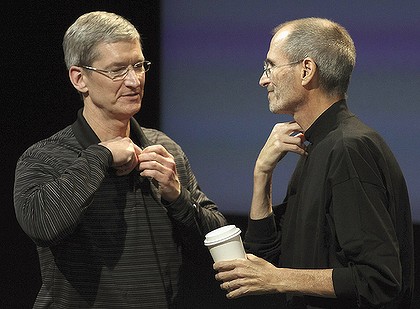
Workers walked out at seventy Market Basket supermarkets in June. Today, they are going back to work on their own terms. The majority shareholders have agreed to sell their stake in Market Basket to the once-and-future CEO, Arthur T. Demoulas. That was the workers’ sole demand.
Why did Market Basket have to cave? The company still owned the stores and the valuable land on which they were built. It had plenty of money in the bank.
What it didn’t own was the company’s reputation.
Reputation is an intangible asset. A company’s brand is the promises it makes, and reputation is the perception that it lives up to those promises.
Market Basket promised workers that they would be respected and rewarded. It made customers believe they would find the food they wanted at the prices they could afford to pay while feeling good about where they were shopping.
In short, it told these two groups of stakeholders that Market Basket was their place. And then the majority shareholders said, “No, it all belongs to us.”
They were wrong.
Intangible assets can be worth as much or more as all the rest of a company’s assets combined. The workers and the customers showed Market Basket how much of the company was really its reputation. Since they controlled that reputation, they could take it away. And they did, for two months’ time.
What happens next?
To buy out his cousin Arthur S. Demoulas and the rest of the shareholders, Arthur T. had to borrow money and to mortgage company property, two things Market Basket had never done before. Will the pressure to repay those loans mean the end of the old Market Basket?
I’m not worried.
Partly, I read an analysis by the Boston Globe’s Steven Syre. Market Basket will have to pay back those loans—but it won’t have to pay dividends to the shareholders who sell to Arthur T. That will cover a lot of the cost right there.
Even more, though, I’m not worried because now the owners of Market Basket and its creditors have to realize the company’s success is not solely in their hands. They have seen—it has been proven—that their workers and their community own their most valuable asset. It would be folly to do anything to ruin that reputation ever again.
I’m not concerned for the future of Market Basket. I worry about other businesses.
- Companies that snatch at short-term profits instead of promoting long-term stability and growth.
- Businesses that fail to realize it’s people who matter the most.
- Any organization, business or nonprofit, that deludes itself that everything is under control.
You cannot own your reputation. It’s in other people’s hands. What are you doing to win them…or win them back?
You can find Dennis Fishman’s original article at Who Cares About Your Company?
See you next week. Tripp continues his discussion on strategy when he returns from vacation.



One thought on “Your Most Valuable Asset is Something You Don’t Own”